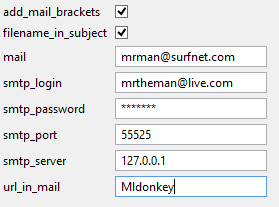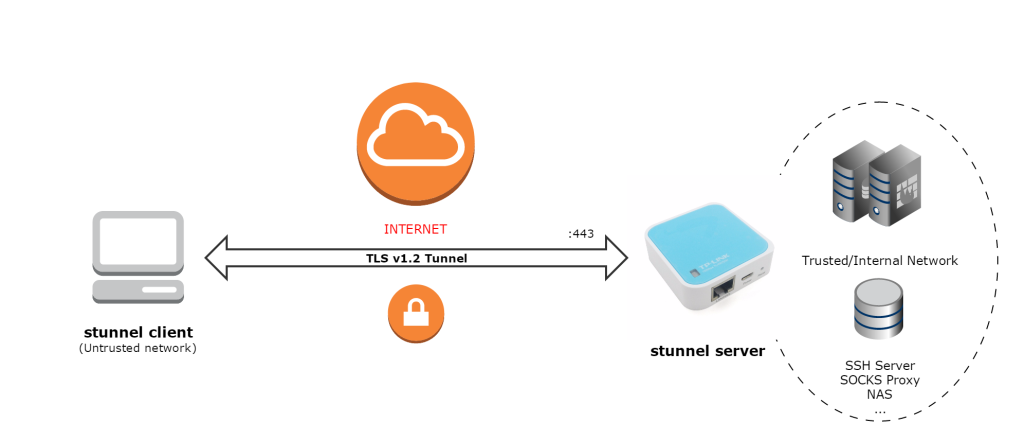

I have to manually anycodings_https kill the processes - anyone have a anycodings_https suggestion to fix that? Unfortunately, on my machine this anycodings_https runserver script doesn't exit out nicely anycodings_https when I hit Ctrl-C. This is fine for anycodings_https development, but obviously won't cut it anycodings_https for production.


This is because you created anycodings_https your own certificate and it isn't anycodings_https trusted by the browser to be telling the anycodings_https truth about who it is. Note that you're browser anycodings_https will almost definitely complain about anycodings_https the certificate used and require you to anycodings_https add an exception or otherwise explicitly anycodings_https instruct the browser to continue anycodings_https browsing. anycodings_https To try it out, just point your browser anycodings_https to for normal HTTP anycodings_https traffic, and for anycodings_https HTTPS traffic. Now when you want to run your anycodings_https development server just execute anycodings_https. Make the runscript file we just created anycodings_https executable with: chmod a+x runserver Line 3: Starts another Django runserver instance (on port 8001) and configures it to treat all incoming connections as if they were being performed using HTTPS.Line 2: Starts a normal Django runserver instance (on port 8000).This has stunnel listen on port 8443, wrap any connections it receives in SSL, and pass them along to port 8001 Line 1: Starts stunnel and point it to the configuration file we just created.Here we'll create a script named anycodings_https runserver that will run stunnel and two anycodings_https django development servers (one for anycodings_https normal connections, and one for SSL anycodings_https connections): stunnel4 stunnel/dev_https &

Now pop back up to your Django project anycodings_https directory (the one with manage.py in anycodings_https it): cd. The last parameter anycodings_https (TIMEOUTclose) tells it to automatically anycodings_https close the connection after 1 second has anycodings_https passed with no activity. Specifically, you're telling it anycodings_https not to use a pid file, where the anycodings_https certificate file is, what version of SSL anycodings_https to use, that it should run in the anycodings_https foreground, where it should log its anycodings_https output, and that it should accept anycodings_https connection on port 8443 and shuttle them anycodings_https along to port 8001. This file tells stunnel what it needs to anycodings_https know. Now combine these into a single file anycodings_https that stunnel will use for its SSL anycodings_https communication: cat stunnel.key stunnel.cert > stunnel.pemĬreate a config file for stunnel called anycodings_https dev_https with the following contents: pid= For this we turn to anycodings_https openssl.Ĭreate the key: openssl genrsa 2048 > stunnel.keyĬreate the certificate that uses this anycodings_https key (this will ask you a bunch of anycodings_https information that will be included in the anycodings_https certficate - just answer with whatever anycodings_https feels good to you): openssl req -new -x509 -nodes -sha1 -days 365 -key stunnel.key > stunnel.cert Next we'll need to create a local anycodings_https certificate and key to be used for the anycodings_https SSL communication. I'll be using anycodings_https version 4 of stunnel (e.g.: anycodings_https /usr/bin/stunnel4 on Ubuntu), version 3 anycodings_https will also work, but has different anycodings_https configuration options.įirst create a directory in your Django anycodings_https project to hold the necessary anycodings_https configuration files and SSLish stuff.
Stunnel timeoutclose install#
We'll anycodings_https use this to open a stunnel port (8443) anycodings_https and pass along any traffic it receives anycodings_https to a Django runserver instance.įirst you'll need stunnel which can be anycodings_https downloaded here or may be provided by anycodings_https your platform's package system (e.g.: anycodings_https apt-get install stunnel). Stunnel allows you to set up a anycodings_https lightweight server on your machine that anycodings_https accepts connections on a configured anycodings_https port, wraps them with SSL, and passes anycodings_https them along to some other server. It's not as simple as the built in anycodings_https development server, but it's not too anycodings_https hard to get something close using anycodings_https stunnel as an SSLifying middleman anycodings_https between your browser and the development anycodings_https server.


 0 kommentar(er)
0 kommentar(er)
